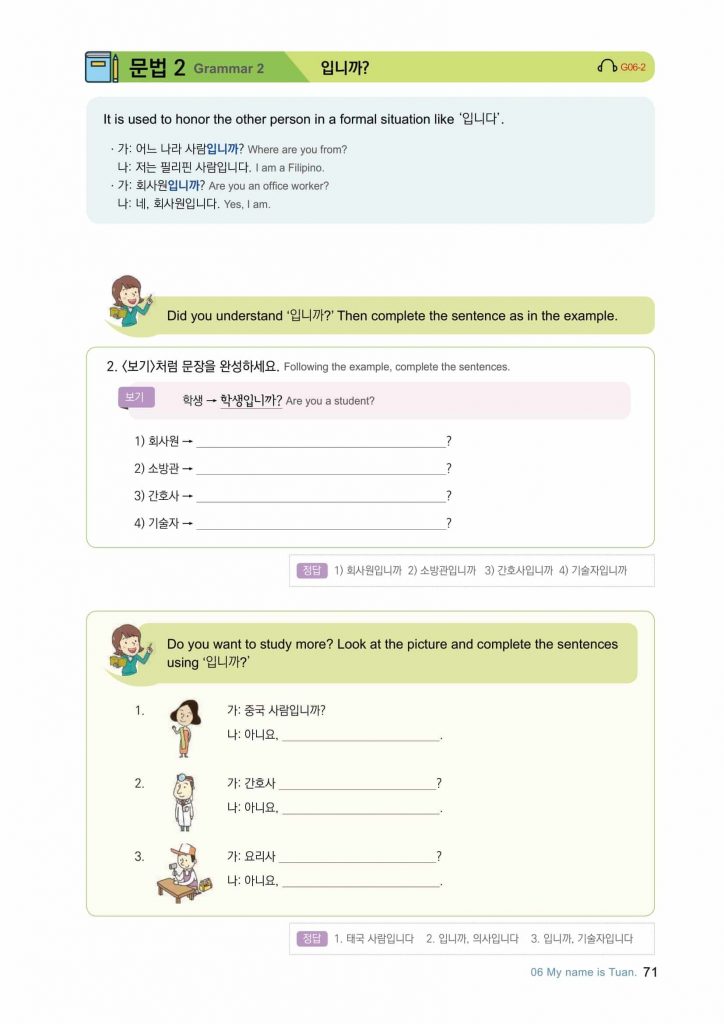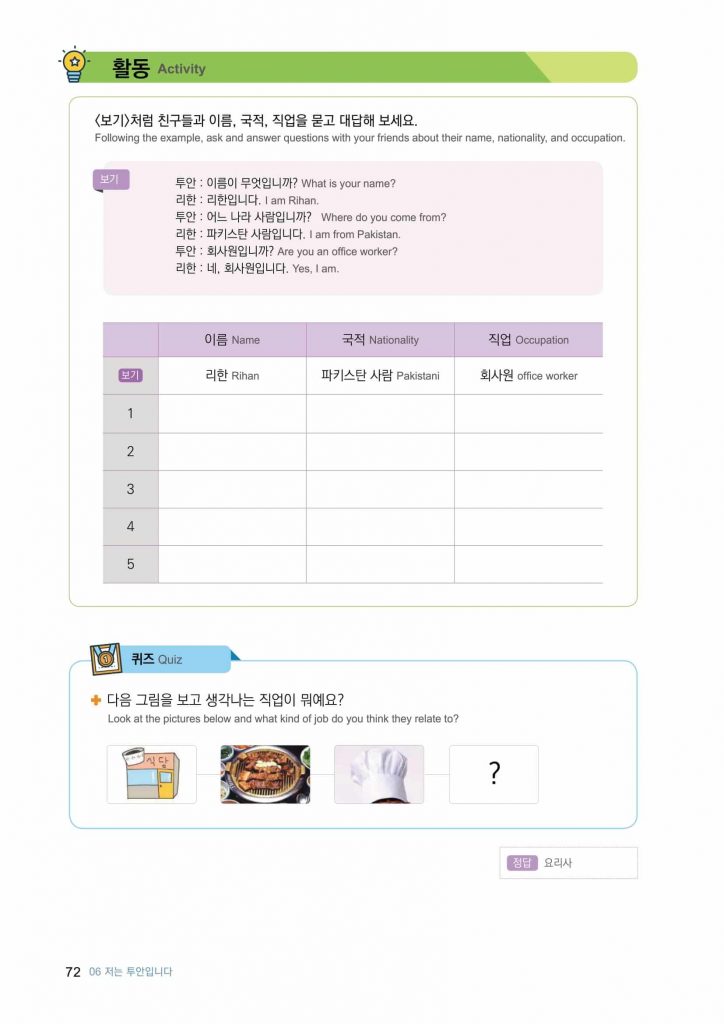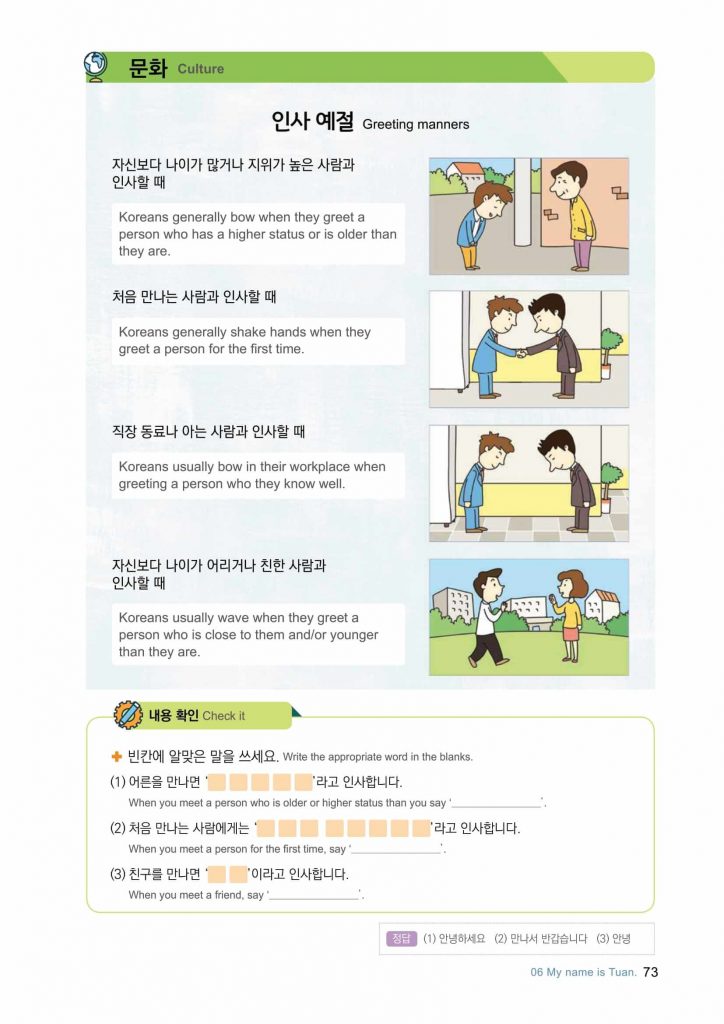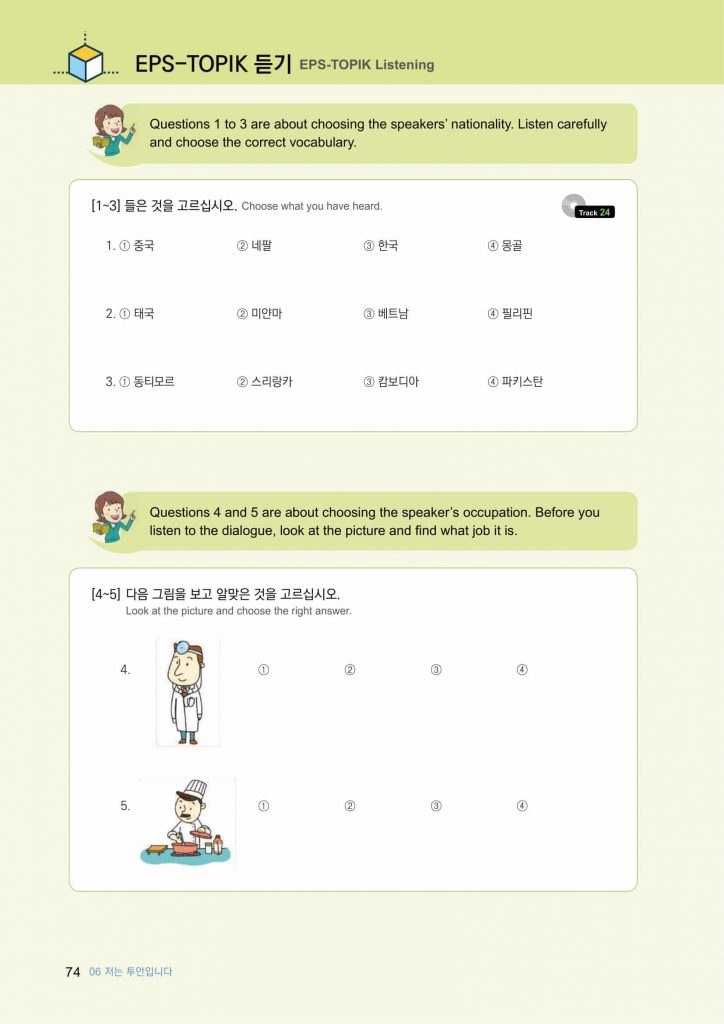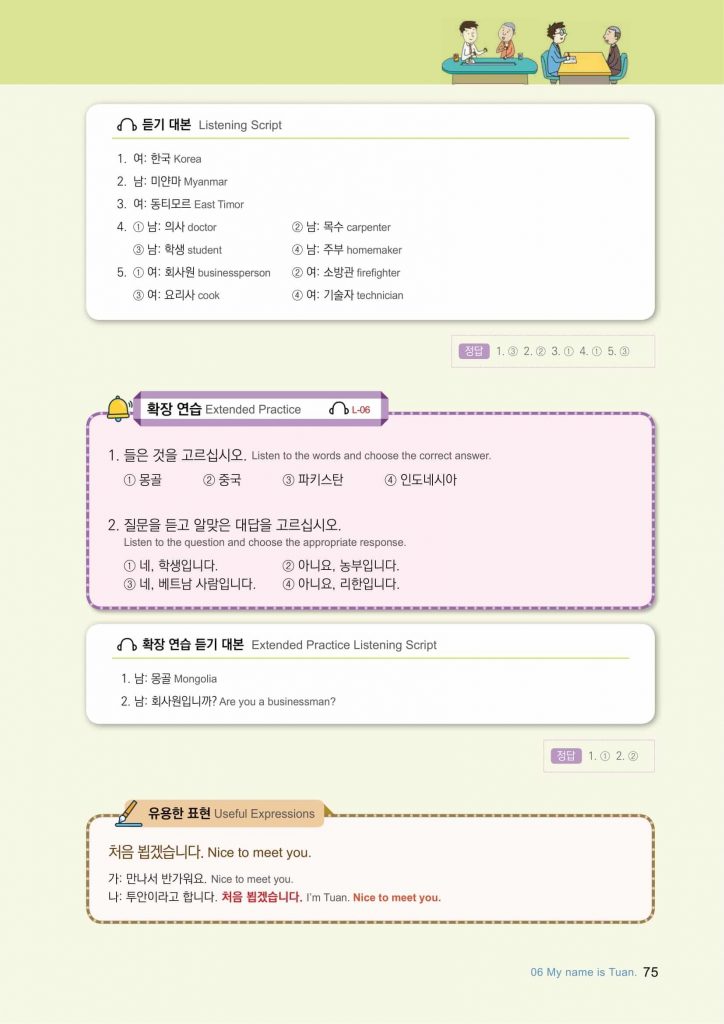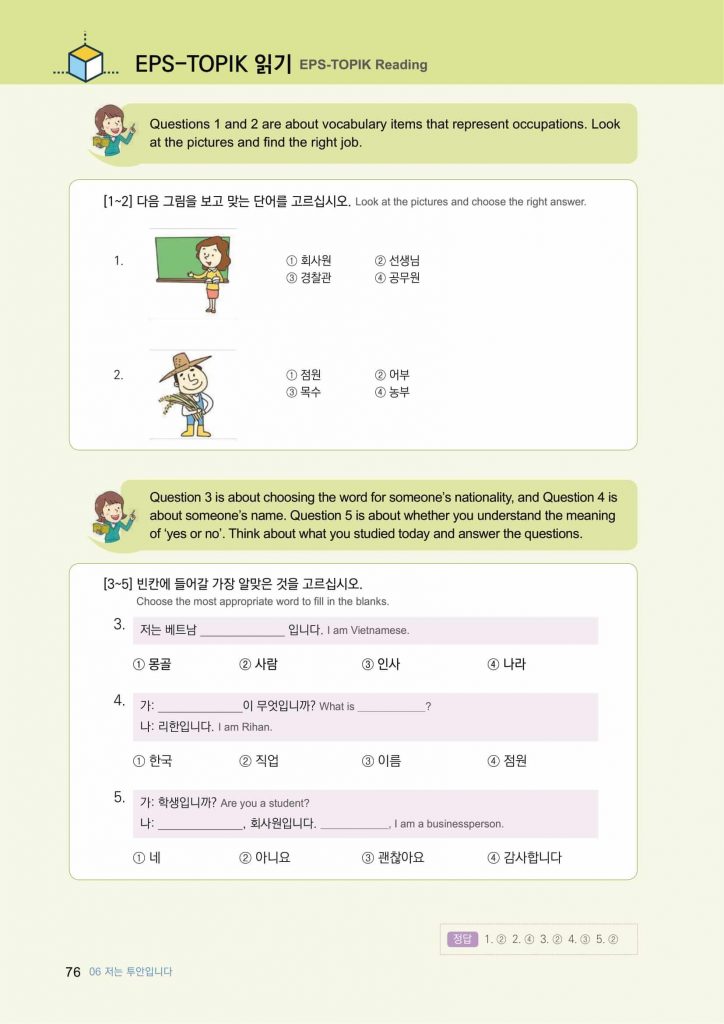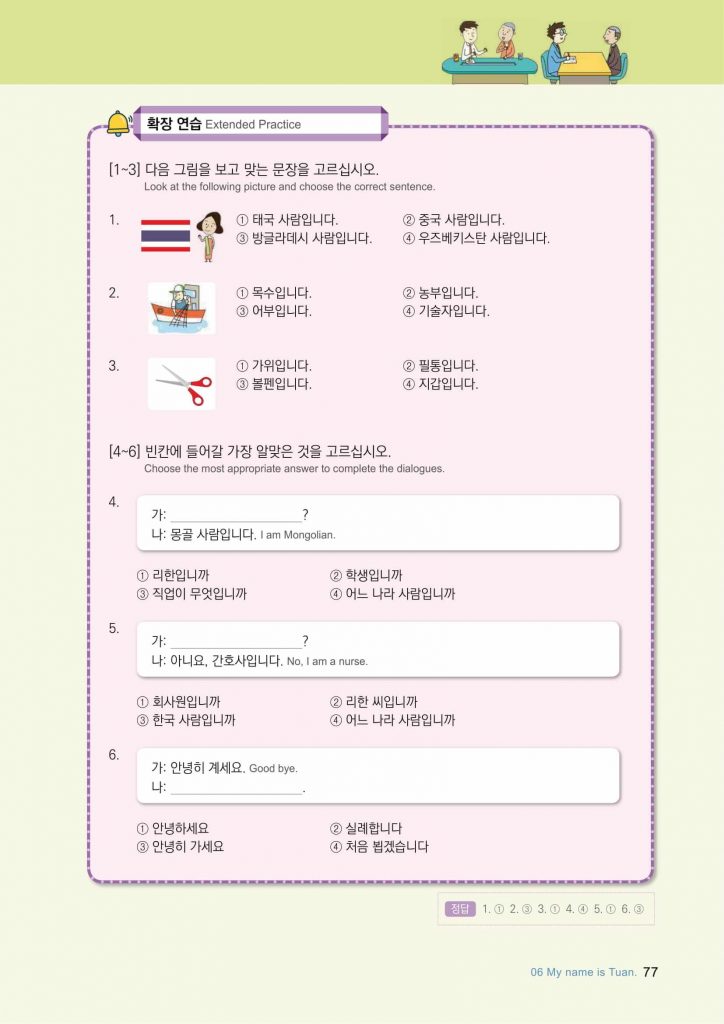English – Self Study Text Book – Chapter 6
저는 투안입니다. My name is Tuan
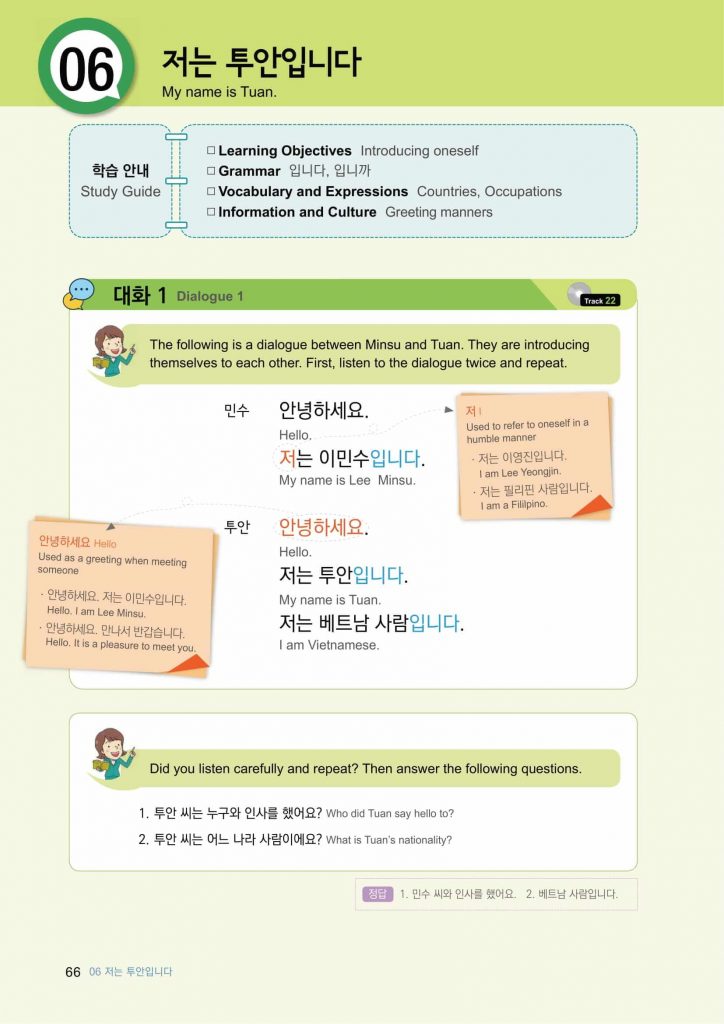
민 수 = 안녕하세요.저는 이민수입니다.
min su = annyeonghaseyo.jeoneun iminsu-ibnida.
Minso= Hello. My name is Minso Lee.
투 안 = 안녕하세요.저는 투안입니다.저는 베트남 사람입니다.
tuan = annyeonghaseyo.jeoneun tuan-ibnida.jeoneun beteunam salam-ibnida.
Tuan = Hello.My name is Tuan. I am Vietnamese.
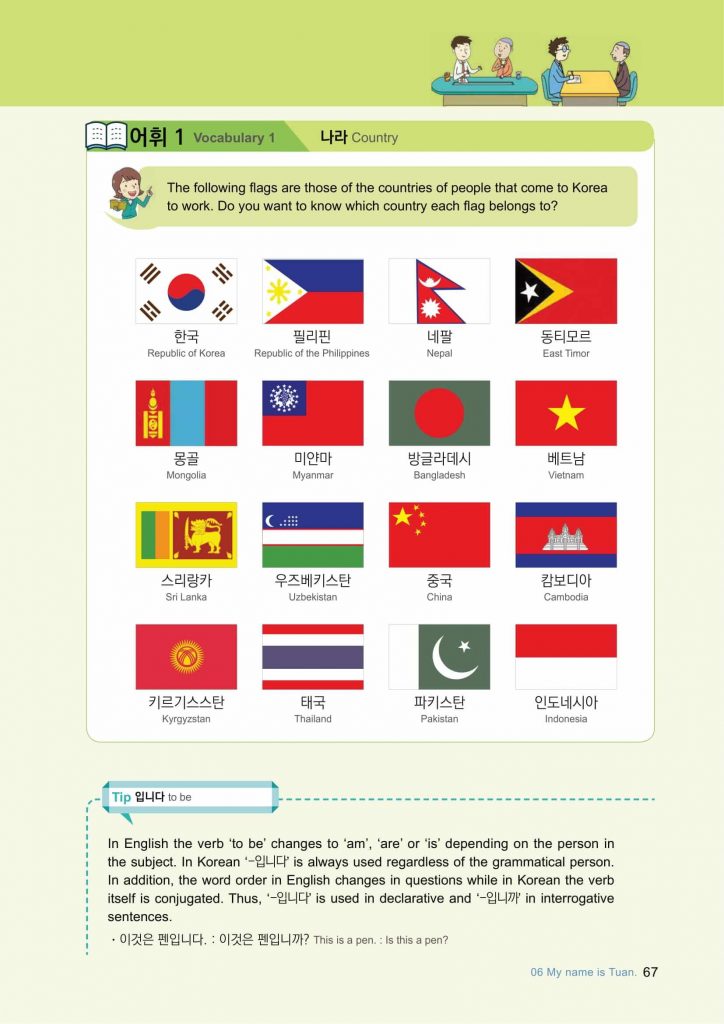
| korean | english |
|---|---|
| 나라 (nala) | Country |
| 한국 (hangug) | the Republic of Korea |
| 네팔 (nepal) | Nepal |
| 동티모르 (dongtimoleu) | East Timor |
| 미얀마 (miyanma) | Myanmar |
| 방글라데시 (bang geulladesi) | Bangladesh |
| 베트남 (beteunam) | Vietnam |
| 우즈베키스탄 (ujeubekiseutan) | Uzbekistan |
| 인도네시아 (indonesia) | Indonesia |
| 중국 (jung-gug) | China |
| 키르기스스탄 (kileugiseuseutan) | Kyrgyzstan |
| 태국 (taegug) | Thailand |
| 파키스탄 (pakiseutan) | Pakistan |
| 필리핀 (pillipin) | the Philippines |
| 캄보디아 (kambodia) | Cambodia |
| 스리랑카 (seulilangka) | Sri Lanka |
| 몽골 (mong-gol) | Mongolia |
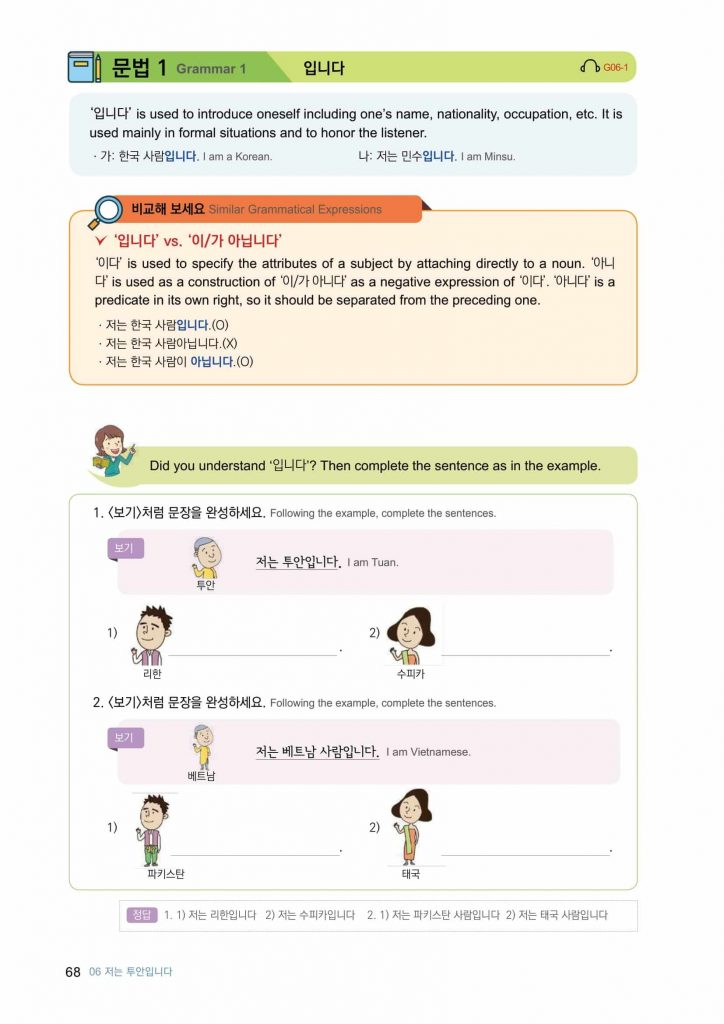
연습 1
1*
1) 저는 리한입니다.
jeoneun lihan-ibnida.
I am Rihan.
2) 저는 수피카입니다.
jeoneun supikaibnida.
I am Sufica.
2*
1) 저는 파키스탄 사람입니다.
jeoneun pakiseutan salam-ibnida.
I am from Pakistan.
2) 저는 태국 사람입니다.
jeoneun taegug salam-ibnida.
I am from Thailand.
Grammar track G06-1 audio in text
today’s first expression is like the verb (입니다) be in English. when it’s used with a noun or the subject. for example I am, he is, they are, we are. the good thing about Korean is that the verb is always the same form no matter what the subject is. it doesn’t change like the Be verb is am and are it’s always the same. you can use 입니다 whether the subject is a I 입니다. you 입니다. she 입니다. or any other subject.
so today we’ll learn how to say I am a student or your name or what country you’re from using 입니다. this is a great start so when can you use this when are sometimes you need to introduce yourself. how about when you start a new job or you’re a student in a new Korean class .
how can you say your name with 입니다 and then how can you say where you are from? say your name first and then say in 입니다 try it now. good now let’s see some more examples in other words 입니다 is used to introduce oneself including ones name nationality occupation etc. it is used mainly in formal situations and to honor the listener. so let’s listen to the Korean sentences now.
저는 한국 사람입니다. I am a Korean.
you see here what comes first I 저는 and then next the country’s name 한국 what’s that? Korea good and then 사람 what does that mean? person 입니다 did we say person in English no we just said I am a Korean. so you can also say the name of your country and then say 사람 person next let’s try in where are you from? what’s the name of your country some names of countries in Korean sound the same as they say in that place for example the (필리핀) Philippines and Philippine. but some countries names sound very different.
for example
the USA and 미국 .
Example
so say your country’s name and then say 사람 입니다. let’s try again did you say 저는 countries name 사람입니다. good now let’s try another example
I am minsu. say 저는 in first then your name and 입니다.
1) 가: 저는 투안입니다.
A: My name is Tuan.
나: 저는 바루입니다.
Me: I’m Baru.
2) 가: 저는 파키스탄 사람입니다.
A: I am from Pakistan.
나: 저는 인도네시아 사람입니다.
Me: I am from Indonesia.
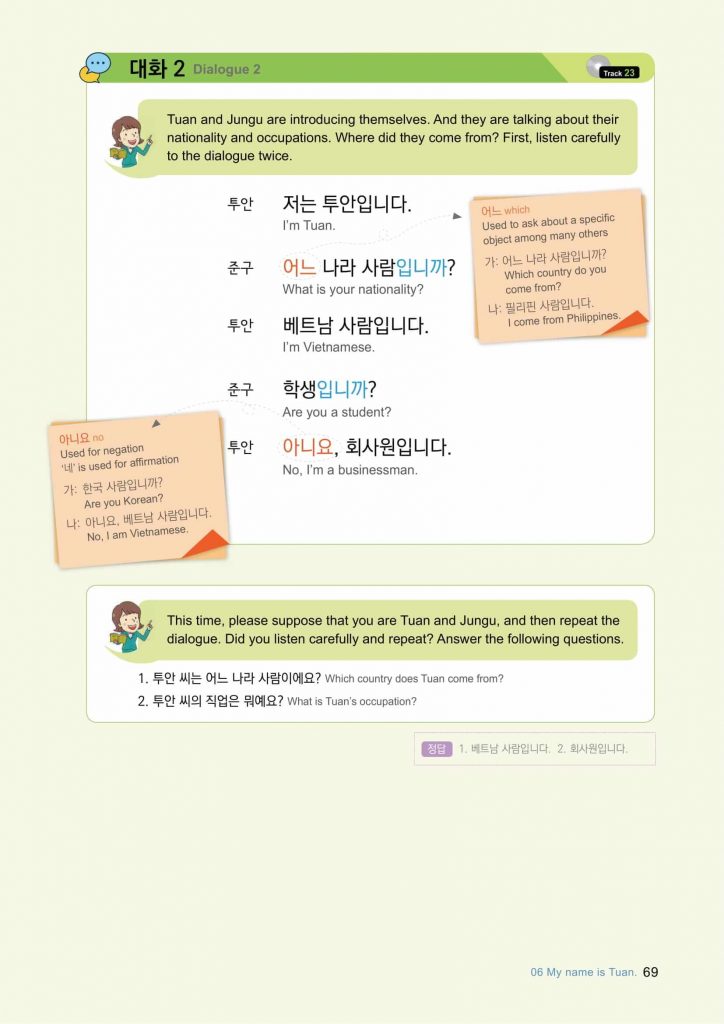
투안 = 저는 투안입니다.
tuan = jeoneun tuan-ibnida.
Tuan = I’m Tuan.
준구 = 어느 나라 사람입니까?
jungoo = eoneu nala salam-ibnikka?
Jungoo = What is your nationality?
투안 = 베트남 사람입니다.
tuan = beteunam salam-ibnida.
Tuan = I’m Vietnamese.
준구 = 학생입니까?
jungu = hagsaeng-ibnikka?
Jungoo = Are you a student?
투안 = 아니요, 회사원입니다.
tuan = aniyo, hoesawon-ibnida.
Tuan = No, I’m a businessman.
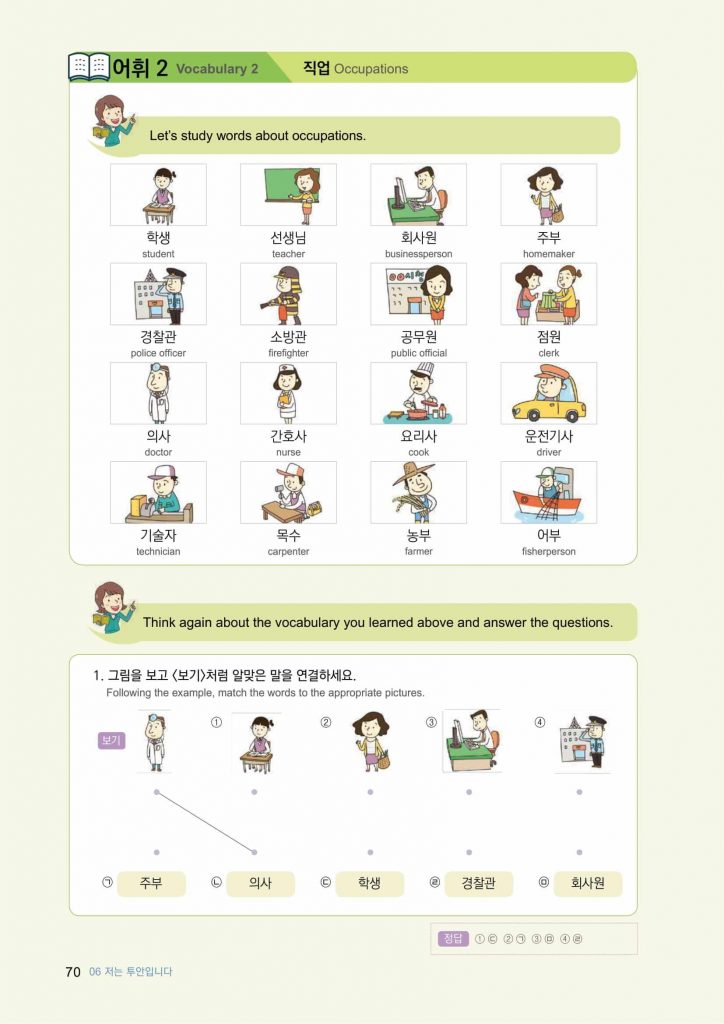
| korean | english |
|---|---|
| 직업(jig-eob) | Occupations |
| 학생(hagsaeng) | student |
| 선생님(seonsaengnim) | teacher |
| 회사원(hoesawon) | businessperson |
| 경찰관(gyeongchalgwan) | police officer |
| 소방관(sobang-gwan) | firefighter |
| 공무원(gongmuwon) | public official |
| 의사(uisa) | doctor |
| 간호사(ganhosa) | nurse |
| 요리사(yolisa) | cook |
| 기술자(gisulja) | technician |
| 목수(mogsu) | carpenter |
| 농부(nongbu) | farmer |
| 어부(eobu) | fisherperson |
| 운전기사(unjeongisa) | driver |
| 점원(jeom-won) | clerk |
| 주부(jubu) | homemaker |
